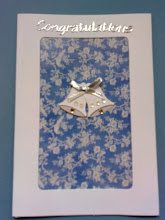I don’t often go for science fiction, but some of the best books have read (e.g. John Wyndham’s The Chrysalids and Z for Zachariah by Robert C O’Brien) have been of this genre. I particularly like Post-Acopolypse type books – imagining what the world would be like after nuclear war. This book is a uniquely different take on this theme. The story begins in a world much like ours, but very far into the future. Governments have been replaced by corporations and humanity is mollycoddled and made complacent through ease of living and complete control of the minutiae of their lives by those that govern them (Made me think of all the talk of "Nanny-State Britain" we hear. At the same time the planet they live on is becoming uninhabitable due to pollution and a new habitable "Blue Planet" has been found for the corporation to begin colonising. The explorers sent to lay claim to this planet also speak of other planets which have been rendered unable to support life - it is rumoured by humans in a previous age.
The story is in three parts, the first detailing the journey to the Blue Planet, the second steps back into seventeenth century Easter Island creating a parallel situation on a smaller scale where the inhabitants of the island are destroying everything on the island in their thirst for power and the third part set in modern London post nuclear war.
The book touches on big themes such as the destruction of the earth, the value of freedom, the willingness of people to live and behave mindlessly. But it also hones in on the personal when it philosophises about loneliness and love and asks what makes us unique as humans? Winterson’s writing is often poignant and I read bits with my mouth open in an "oh" and feeling very sad but it is also quite funny at times, dealing with cosmetic surgery, robots, traffic wardens and our obsession with the way we look.
Winterson’s writing is very poetic, describing new planets and ghosts planets, galaxies, nature and the effects of war in the most lyrical manner and this meand that the book often has a very dreamy feel.
I found the book at times a little hard to follow as the story jumps backwards and forwards between different times and I don’t think I understood the ending much at all. But I still found it to be an absorbing read and got through it in two days.































No comments:
Post a Comment